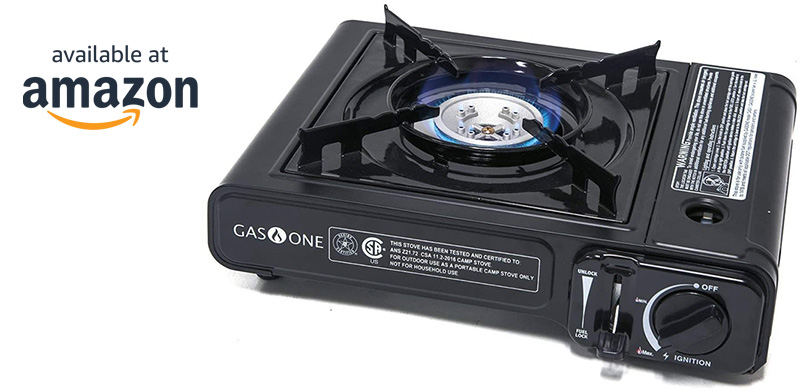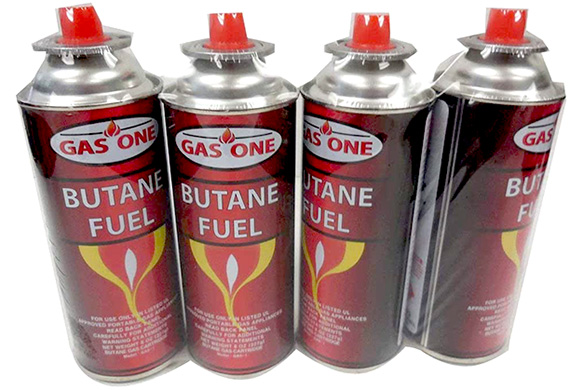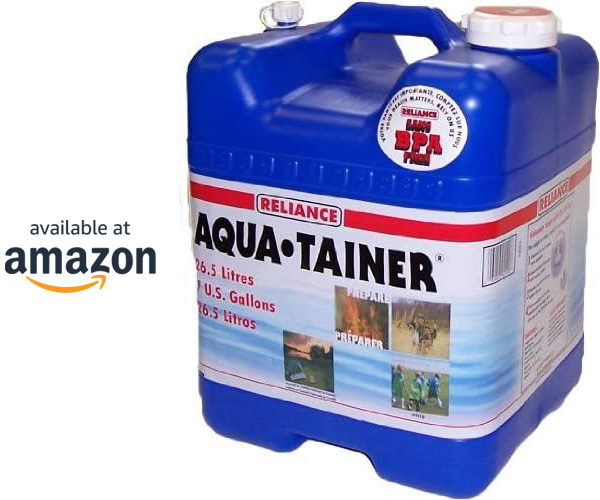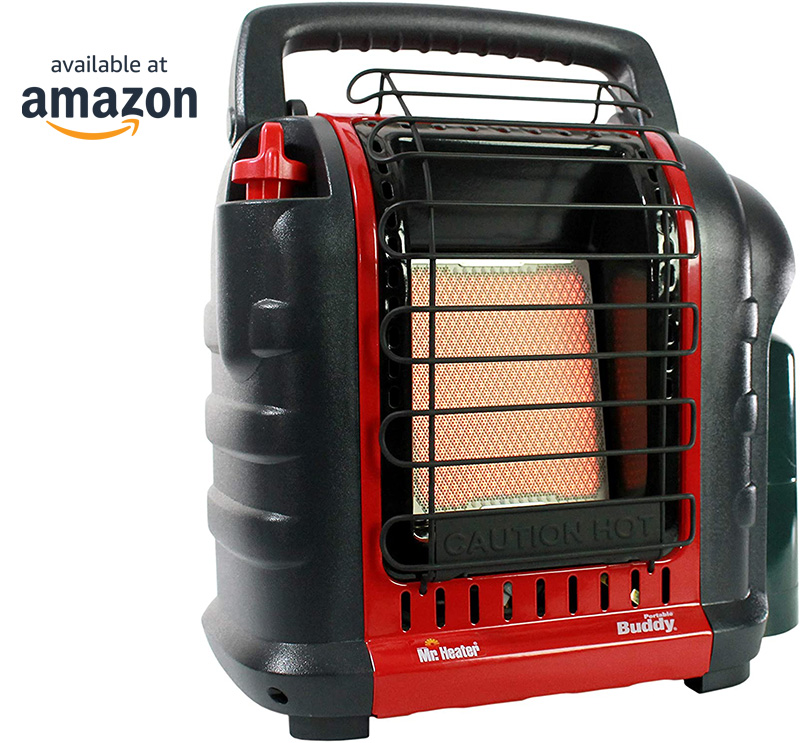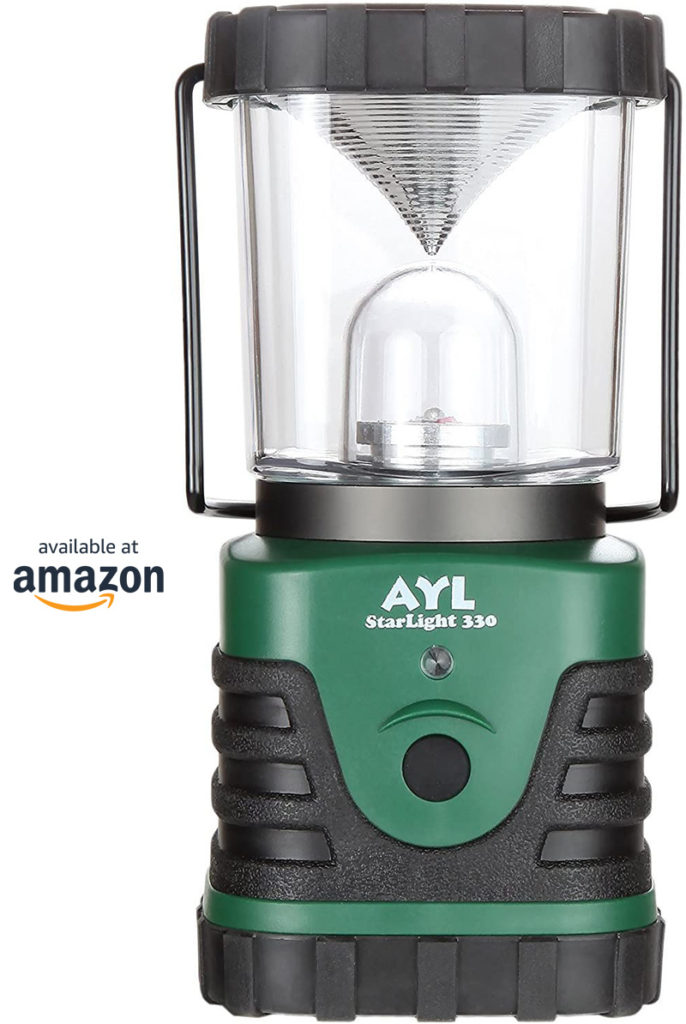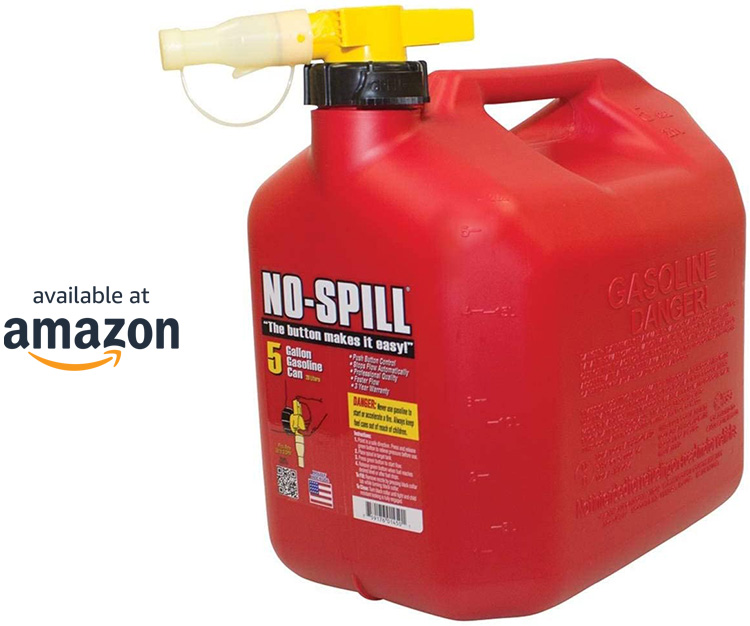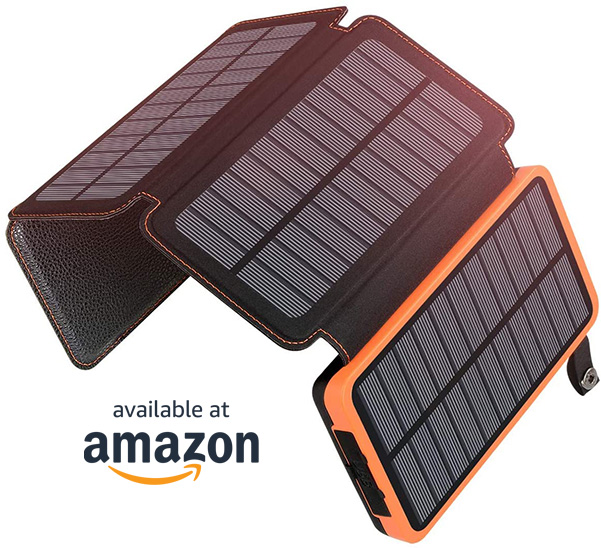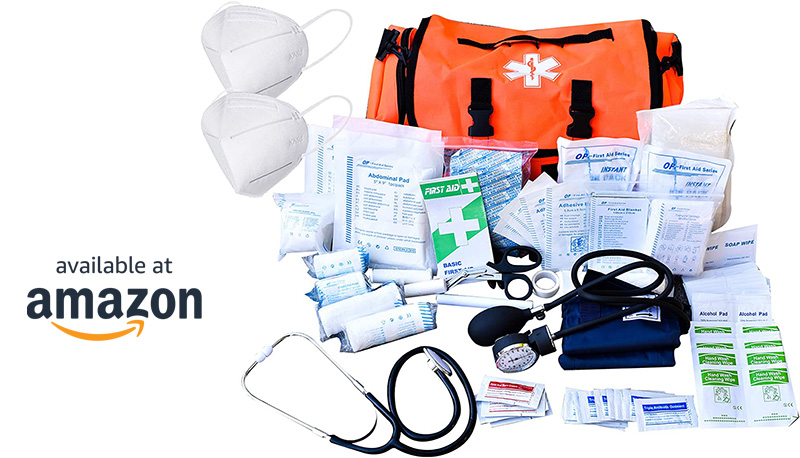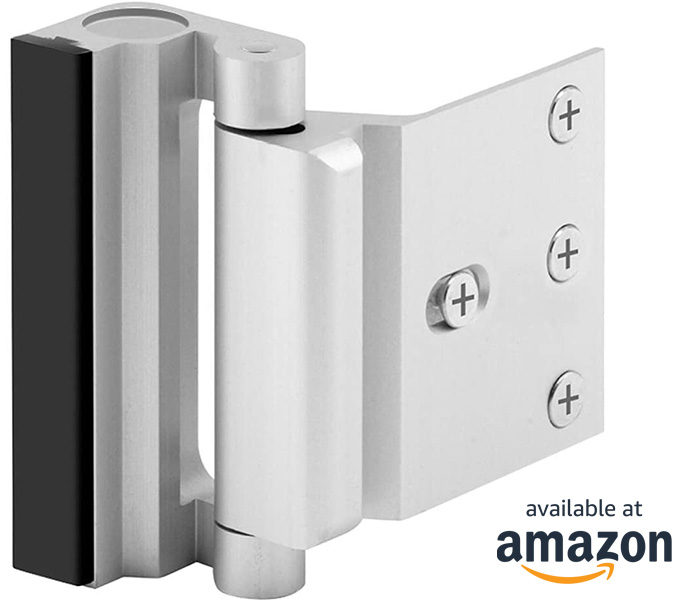The Easier Way to Start Prepping: A Beginner’s Guide for New Preppers
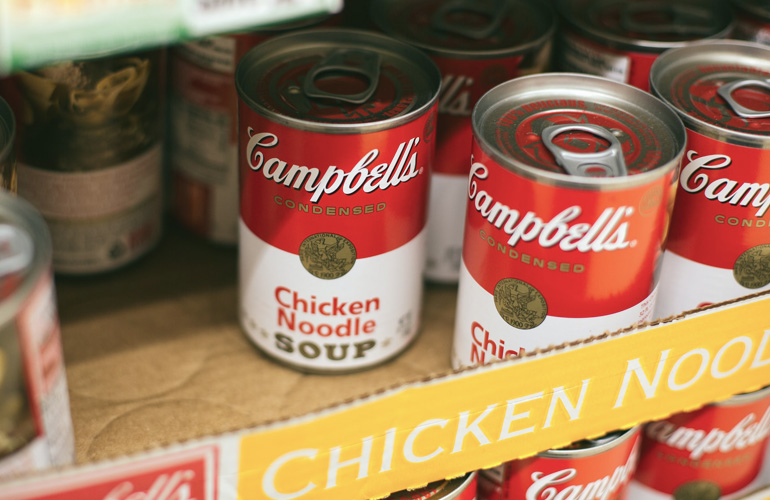
Every time there is moderate or large-scale emergency, interest in prepping surges dramatically. From regional natural disasters to global economic recessions, there’s nothing quite like a good disaster to snap people out of complacency and make them realize how fragile our system and way of life really is. Near the beginning of 2020, the global COVID-19 pandemic caused millions of previously-uninterested people to become immediately inspired to learn more about preparedness, survivalism, and all manner of self-sufficiency. Out of what will likely be the biggest and most wide-scale disaster in generations has come a new generation of aspiring preppers.
Accordingly, interest in prepper resources has skyrocketed in 2020. Google searches, YouTube viewers, and purchases of preparedness-related merchandise has climbed by unprecedented proportions since the onset of the Coronavirus in the United States. As with anybody breaking into a new hobby, venture, or lifestyle, the question is inevitably posed, “How do I get started?” And that’s exactly what we’re here to answer.
Many new preppers express being quickly overwhelmed after seeing and hearing about the established preparedness measures of people who have been at it for years. They think, “I would need to spend thousands of dollars and thousands of hours to feel prepared.” And that sentiment often extends to, “So why even bother?” It’s true that a person who has been prepping for years is going to have an impressive-looking setup. Their food and water stores, their power-generation, and their general skill set will be leaps and bounds ahead of you.
If you have an interest in prepping, you’ve likely seen videos of fabulous homesteads, underground bunkers, and refurbished missile silos. You’ve probably seen images of elaborate bug-out bags and survivalists decked out with loads of tactical gear. You probably feel some mixture of “That is awesome” and “I’ll never be able to do that.” Here’s the thing: It doesn’t take a bunker to be a prepper. It doesn’t take an AR-15, body armor, and 10,000 rounds of ammunition to become more prepared than the vast majority of Americans. Don’t get bogged down in worrying about these expensive and complicated things when you’re getting started.
Basic preparedness is too important to get discouraged before even getting started. The only way to eat an elephant is one bite at a time, and the only way to become prepared is to start getting prepared.
So we’re going to discuss how to break it down into bite-size pieces. You will start inexpensively, and with just a little bit of effort you will already be significantly more prepared than you were.
Forget Doomsday: Start with One Week
It’s been said that most Americans do not have more than a couple days’ worth of food in their pantry. I’m sure most people could scrape together enough miscellaneous stuff from our homes to get an extra day or two out of that, but that’s probably cutting it close. How about water? If something happens to your municipal water supply, do you have more than a few bottles of water sitting in your garage right now? Could you fuel up your car for a week if gas stations were dry starting right now? Do you have a full week of prescription meds at all times?
When the pandemic first became big news in the US, we all remember the rushes on grocery stores. We remember the panic buying, and the toilet paper hoarding. Millions of Americans suddenly learned the hard way that they don’t even have even a meager supply of the most basic and essential items. If you were one of them, I bet you’ve since resolved to never allow that to happen again.
Again, we’re starting with one single week. What does that mean? Think about everything that you need in one full week. Food, water, medicine, hygiene, power, fuel, heat, light, security, etc. Make a list. Write it all down. Now think about how much you want in one full week. Entertainment, luxuries, guilty pleasures, etc.
Start with the “Needs”. Break it down as granularly as possible. What do you need in order to live for one week, assuming you will have no utilities (electricity, gas, water, etc.), no municipal services (garbage pickup, road maintenance, basic police services, etc), and no ability to re-supply (grocery stores, gas stations, internet purchases, etc.). Some of these will be straightforward. You can go buy food. You can buy water or water jugs. You can stock up on batteries, toilet paper, and first aid supplies. Some of them will require a little more thought and effort.
Here are a few categories of things that must be considered for a preparedness plan of any size:
Food
Generally speaking, we’re going to discuss shelf-stable food options. My freezer has enough food in it to last a couple weeks, but that will do me little good if the power goes out and I don’t have a generator with plenty of fuel. For the purpose of prepping for one week, we’re talking about shelf-stable food. This includes canned food like soups, vegetables, fruits, and even meat. You can even buy canned bread! This also includes dried pasta, rice, oatmeal, and beans. Then there are “ingredients,” like flour, sugar, baking powder, yeast, spices, etc. All of these things are (usually) available in any grocery store, and all are pretty inexpensive.
Seven days isn’t very long, but I think you’ll be surprised by how much seven days’ of food really looks like when you pile it all together. In our modern system of “Just on Time” supply, instant gratification, drive-thru, meal delivery, and so forth, physically having an entire week of supplies actually on hand is a very unusual thing for the average American. Still, accumulating this quantity of pantry food will not break the bank (but it makes all the difference between desperate and prepared).
When building up your food stores, there are a couple important rules of thumb.
- Stock up on what you already eat. If you’ve never liked lima beans, don’t buy canned lima beans. You will end up with food you’ll never eat, which is a waste of money and space.
- Cycle out your food stores. This means use the oldest food first. This is partially why stocking up on what you actually like is important. Don’t just set aside 20 cans of your favorite soup and designate them “the emergency soup”. Cycle that soup in and out as you eat it. Use a can; replace a can.
- Be sure to have a wide variety of foods. Just because you really like Hormel chili doesn’t mean you will be excited about eating it every single day since you purchased a pallet of them and checked “food preps” off your list! Not to mention the havoc it would surely cause on your digestive system. You need diversity in your food stores, for both dietary reasons and psychological reasons. There is such thing as “food fatigue”, and people have been known to develop an absolute repulsion for a food if they have eaten it too frequently – even when faced with starvation.
- Store your food properly. Keep it out of extreme heat or extreme cold. Seal dry goods so they aren’t infested with insects.
And let’s not forget about babies and pets. Can you store baby formula in powder form? Do you have enough dog food on hand?
The last thing I’ll mention in the “food” category is a method with which to cook that food. Prepping is all about having a way to do things when the “normal” way is no longer an option. For cooking food and heating water, I recommend some sort of portable camping stove. You can get stoves that run on fuels like propane, butane, alcohol, or various hybrid/proprietary gases. There are also various types of portable stoves that use wood or other solid fuel. For your one week prep, I tend to recommend butane or propane. It’s easy to get, relatively inexpensive, and the same goes for the stoves themselves. Just be sure that you use the stove safely and according to the instructions and warnings that come with it. Running a butane or wood camp stove in your kitchen, for example, is a very bad idea.
Water
If you have regular city/municipal water service, you’ve likely encountered a time in your life when a “boil water” advisory has been issued. Usually this is caused by a water main break and subsequent back-flow of water pressure, resulting in water that is possibly contaminated with sewage. For a day or two, your town will warn everybody not to drink or otherwise use the tap water without boiling first. Consider if this were to happen for several days. Or worse yet, consider what you would do if the pumping stations stopped altogether. During the Northeast blackout of 2003, water stopped flowing altogether for hundreds of thousands of people.
If you have well water, what happens when your electricity goes out? Your pump stops pumping, of course. Unless you have a manual hand pump or some sort of backup power system, you have zero running water. For a much longer-term preparedness plan, establishing some sort of alternative power and/or pumping method to ensure you can always access your well water is an invaluable solution. But since we’re talking about how to start prepping (for one week), we’re not going to get into that quite yet.
So what does a dry tap mean when you’re prepping for seven days? Simply put, it means water storage. It’s said that the absolute minimum stored water you should have is one gallon per person per day. This includes water for drinking, cooking, cleaning, and hygiene. I consider that number to be pretty low, but it’s a starting point. When you start washing dishes and cleaning your hands, one gallon of water vanishes in a hurry. Whether you choose to start with the “bare minimum” or a larger quantity, the fact remains that you need to store more water than you are right now.
One option is buying bottled or jugged water from the store. You can get flats of water bottles, gallon jugs, or two gallon containers. Grocery stores sell “drinking water,” spring water, and distilled water. This is certainly one way to go, but I don’t personally prefer it for three reasons:
- It gets expensive. If you have a family of 3, that’s 21 gallons of water you need to stockpile for the “bare minimum”. That’s not too expensive for your one week of preps, until you consider reason #2.
- Bottled water from the store does not last very long. Or rather, the containers are not meant to last very long. Bottled and jugged water is sold as a one-time use, disposable consumer product. The containers are the thinnest, cheapest plastic available, and that material begins degrading rather fast. If you don’t use up that water, you will eventually have leaking containers, and you will actually risk chemicals from the plastic beginning to leech into your water. Again, these products are made to be used up, not stored in a house indefinitely.
- The stores have been sold out of bottled and jugged water intermittently since the COVID-19 panic buying began. I usually see a few flats of small water bottles at the store, but they’ve been pretty consistently sold out of 1 and 2-gallon jugs for months.
A better option, as I see it, is to store reusable water containers of some sort. You can use those blue jugs that are commonly used for camping. You can use food-grade buckets with a sealed lid. For one week of storage, I recommend starting with a few of the blue 5-gallon jugs. Later, you can decide whether or not to upgrade to something larger, like 55 gallon barrels.
If you have chlorinated tap water, you can fill up those jugs and the water will be perfectly fine indefinitely (assuming you don’t store the jugs in a very hot or very cold location). If you have untreated water (from your well or somewhere else), you should treat the water before storing. You can buy water treatment liquid that is sold for this exact purpose. You can also use a very small quantity of bleach to treat the water for storage (be absolutely sure to use the proper water-to-bleach ratio if you choose this method).
Heat
If you live in a climate that gets cold, you must account for heat. Humans can live a few days without food or water, but exposure to sustained freezing temperatures will become a problem very quickly.
Your plan for this will depend entirely on your current setup and capabilities. If you live in a city, and you have a regular gas furnace, what will you do if the electricity goes out? How about if the gas is turned off? A generator is an option to address the power issue, but the gas issue still remains. Does your home have a fireplace or wood-burning stove? If you have a wood-burning stove, your preps for heat could be as simple as stocking up on enough firewood.
Heat is a tricky thing to prep for if your home is not currently equipped for alternative heating (such as wood-burning stove or fireplace). If you have a propane tank on your property, a generator may be the solution you need, so you can continue running the furnace. If you don’t have those things, you may consider some type of portable heater. I absolutely advise learning everything there is to learn about using portable heaters in your home before you do this, because people die every year from carbon monoxide because they try running propane or kerosene heaters inside their homes (not to mention the fire hazard). There are particular types of heaters that can be operated safely indoors, and I will leave that up to you to research.
If no sort of alternative heat-generating appliance is feasible, stock up on warm blankets, thick socks, caps, gloves, and jackets. Consider getting some chemical hand warmers.
Light
This is a simple one. Do you have enough flashlights, lanterns, or candles to provide the light you’ll need during the night? I recommend battery-powered lanterns that can be set around the room. Candles are tried-and-true, but come with an inherent fire hazard.
If you are going the battery-powered route, make sure to have enough disposable batteries on hand, and make sure any lights that must be charged are charged.
Fuel
If the gas stations closed right this moment, do you have enough gas to get where you need to go in an emergency? If you have a portable gasoline generator, could you run it for a week straight? Do you have enough gas for your portable heaters, stoves, etc?
When storing gasoline or compressed gases, you must take every precaution. For gasoline, used only approved storage containers, and store them properly, not inside your house. Make sure not to keep compressed gases stored at high temperatures (such as in a sweltering attic or shed). Having enough gasoline on hand to run your car and/or generator for a solid week will end up being a few gas cans’ worth of fuel.
Make sure to store it properly, and cycle that fuel out regularly. Gasoline breaks down after a few months and becomes unusable, and may even cause problems with the machine you put it in. You can also purchase bottles of fuel stabilizer, which will help extend the life of gasoline by a few months.
Power
We already touched on this when discussing running a portable generator. But even without one, you should be able to produce enough electricity to charge your cell phone and some other basic devices. A small solar-powered battery bank is a great way to prep for this. There are a lot of devices these days that use an internal lithium-ion battery, and are charged via USB cable. Plenty of solar charging products and various battery banks are on the market, and can be found relatively inexpensively.
Medications and First Aid
It should be no problem at all to ensure that you have a 7 day surplus of any prescription medications you take. Be sure to get your refill as soon as it’s available. Pharmacies almost always fill recurring prescriptions before you will have actually run out, and you can easily build up a full month or two buffer after a little while. If you aren’t sure about this, ask your doctor about getting an extra month just to be safe. You may have to pay for it all out-of-pocket, however, since insurance companies don’t like to pay for anything except the bare minimum. I don’t officially endorse this, but I have heard of people telling their doctor that they lost a bottle of pills, so they can get a new one filled early (and thereby having an extra month’s supply on hand). And if you have severe allergies, make sure to have an extra epi-pen. I don’t need to tell you how bad it can be if you don’t have one when you need it.
Aside from prescription meds, be sure to have any over-the-counter drugs you could foresee ever needing. Getting the flu, cold, or even Coronavirus during that week the supply chain is down is bad luck, but making sure to have all the decongestants, cough drops, aspirin, and whatever else can make all the difference.
A quality first aid kit should be a no-brainer, regardless if you’re a prepper. Make sure to have a kit on hand with plenty of all the essentials, such as disinfectant wipes, gauze, bandages, burn cream, etc.
Toiletries and Hygiene
It should go without saying that you ought to have at least a week’s supply of toilet paper, paper towels, toothpaste, soap, diapers, baby wipes, feminine hygiene products, and all the other basic toiletries. But the “have more than a day’s worth of food in your pantry” should also go without saying, but many people don’t. So here we are.
Don’t be “that guy” who is scrambling to find a couple rolls of toilet paper while everybody else is doing the exact same thing. We saw how that goes, and it’s not pretty. Sanitation and hygiene are important, even when we’re not in a pandemic. Disinfectant like bleach, antibacterial soap or hand sanitizer, and disposable gloves are all staples of sanitation. Make sure to have a solid week of hygiene and sanitation supplies on hand at all times.
Security
Last but not least, we’re talking about personal security. In times of crisis, humans become unpredictable. You can watch countless videos online of panic-buyers fighting and freaking out, trying to get their hands on the most basic items and groceries. With civil unrest, the pandemic, and all the other problems facing our country right now, you can’t assume with 100% certainty that the police will respond quickly (or at all) to your calls for help.
Firearms are a common theme among preppers and survivalists of all sorts. A gun is not, by far, the only security measure you should focus on, but there is no denying that possessing and being proficient with a gun gives you a major advantage in response to any direct threat to the safety of you or your family.
Since the beginning of the pandemic, firearm and ammunition sales have surged to unprecedented levels. Guns and bullets are difficult to find on store shelves or online. During a crisis is the worst time to buy a gun or ammo. If you can even find what you want, the prices will be very high. For your seven day prepping plan, don’t get fixated on “guns and ammo”. A seven day crisis is long enough to die from dehydration or exhaustion, but the fabric of society will have not yet unraveled into a feral wasteland. If you already have firearms, make sure they’re clean and accessible. Sort your ammo and make sure magazines are loaded and ready. But if you are starting from scratch, devote your resources to food, water, and the other necessities first.
That being said, there are plenty of security measures you can take which do not boil down to”have guns”. You can buy longer screws with which to reinforce your door hinges and deadbolt strike plate. You can make sure your windows all have coverings on them to prevent any “window shopping”. You can make sure to know where your family is at all times, and stay in frequent communication with them. This is just the tip of the iceberg, but there are dozens of practical ways to make you, your household, and your vehicles more secure. Firearms are a game-changer when it comes to a direct threat of physical violence, but they are also the last line of defense. Do everything you can to avoid being in the situation in the first place which would require you to draw a gun.
To reiterate: Having guns and knowing how to use them is an invaluable resource and skill set. But if you are starting from scratch, spend that money on food and water instead of bullets.
Great, Now Double it!
Through the course of prepping for 1 week, you are bound to end up with more than one week’s worth of certain items. Plus you will have already done the legwork of calculating how much you need of each thing. Therefore, scaling up from 7 days to 14 days should be no problem at all. Buy a little more food, buy a couple more water jugs. Get another gas can or two, some more propane, a few extra batteries.
I recommend starting with 7 days because it’s a bite-sized piece. It’s easy to see, and easy to get motivated for that span of time. Just getting started is often the hard part, and a 7 day plan makes it very attainable. By the time you’ve achieved it, doubling it to two weeks will seem like almost nothing.
Prepping for One Month and Beyond
Once you aim to scale your preps up to one or more months, it starts to get a little more in-depth. Now it starts making less sense to keep buying 5-gallon jug after 5-gallon jug, and more sense to get a 55-gallon barrel. Rather than stocking hundreds of canned goods from the store, it starts making more sense to look into bulk food options, including preserving your own food. When you start prepping for one month, 6 months, 12 months, you’re branching out into the “long-term storage” aspect of prepping. This is when you can start spending a lot of time and money, but it’s also where it gets more fun (in my humble opinion).
I could write volumes on food preservation, food storage, canning, vacuum-sealing, dehydrating, and everything in between. I could talk for hours on end about hardening your home and using firearms for defense. We could talk in-depth about solar panels, rain barrels, and gardening for food production. But this is an article about how to start prepping, so that’s where I’m going to leave it.
It all starts with seven days. Answer the question, “What things and what knowledge would I need in order to live and be comfortable in my home for 7 entire days, if there were no utilities, supply chain, or municipal services?” Once you’ve done that, congratulations! You’re a prepper.

